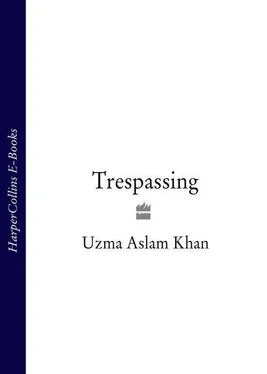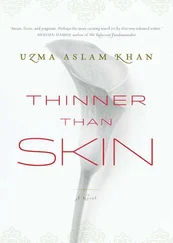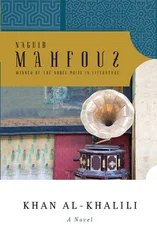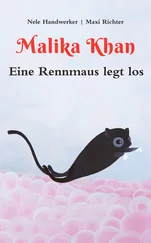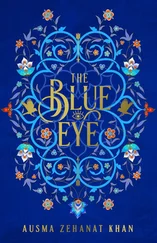She and Shafqat left these rallies resolving to return home and together make a better world. They scoured the paper for news of events in their own country, fuming about press-censorship, delighted that back in Karachi, Shafqat’s father was at the center of anti-martial law protests. Holding her, marching down to the American Embassy in Grosvenor Square, Shafqat would excitedly proclaim, ‘That general is sitting on top of us because of the same power that sits on Vietnam. But things are changing. I can feel new wheels in motion.’ And he’d tell her how the notion of fate enraged him. History was a question of conscious, free will. Not of helplessly succumbing to choices made by others.
JUNE 1968
For many years she held on to the fossilized shark tooth he’d hidden in her flat one night.
‘It’s something very womanly,’ he teased.
‘So it has to do with my period?’
‘You might say that.’
She fished in amongst sanitary napkins. Nothing there, nor in her make-up kit. She padded back into her bedroom and threw underwear out from a drawer, exasperated.
‘You were closer in the bathroom,’ he grinned.
She finally saw it in the bristles of her toothbrush — two crusty inches sticking out like a siphon in a bed of white kelp. ‘What on earth is this? And what does it have to do with my monthly flow?’
‘People once believed shark teeth had magical powers. If you left one with a woman, you’d win her heart. And, she’d get good and fertile.’
‘Oh, so you’d have sex and offspring, all thanks to a three-hundred-million-year-old jaw?’
‘Let’s see.’ He wound his arms around her, loosened her blouse, buried his scabrous chin between her small breasts.
Happier than ever before, she was also miserable: she lived under her father’s roof, ate his bread, earned her degree with his pounds. Yet the best part of all — Shafqat — her family could not know.
Her mother hadn’t wanted her to come here. Girls didn’t go abroad alone. Otherwise, who’d propose to them? But her father trusted Riffat, the youngest of five daughters. And in return, Riffat brought Shafqat to the apartment. She could just see her mother’s delight: See? I told you.
Even in her most private hours she couldn’t get away from feeling dirty. Boundaries existed even here, in this vocal city, after all. She vowed then to never make her daughter, if she had one, feel this way. She’d never cause her to steal furtively in corners for fear of incurring her mother’s wrath. She’d never tell her who to love and who not to. Instead, she’d tell her to choose independently and to hold her head up high when she did.
That night she toyed with the tooth in her palm, feeling the coarse rock against her smooth thumb. It was a frosty June, but the days were long and they slept late. Sprawled on the carpet of the living room-kitchenette, their conversation turned, as it often did, to Shafqat’s father. He re-read her bits of the man’s letter on the anti-Ayub agitation.
Her head was propped against the couch, her one foot in a gray sock on his bare foot. She was tugging his thick hair with her woolen toes. The floor was strewn with her sketches and his diagrams. Suddenly, she said, ‘Your poor mother.’
He looked up, ‘Poor?’
‘Well, she hardly ever sees her husband.’
‘My mother’s brave,’ he replied. ‘A woman doesn’t know what resources she has till she’s put to the test.’
‘All right for you to say,’ Riffat looked at him.
‘Yes it is,’ he looked back. ‘She’s my mother.’
‘But there are things she might not share with you, so you won’t worry. That doesn’t mean she ought to keep being put to the test.’
‘I’m not saying she should be. All I’m saying is that she’s proud to have a husband who fights for a freer environment. He speaks for all of us. Including her.’
‘But what if she preferred to speak for herself?’
‘What do you mean?’
‘I mean: would he live up to the test?’
Shafqat stared as if he’d turned to stone.
She sat up, crossed her legs. ‘I mean, would he be the one to stay at home with the children, to feed and nurse them, to attend to her phone calls, arrange her meetings, swallow his terror every time she was arrested and the family stood to become motherless?’
He folded the letter. ‘These are my parents you’re hypothesizing about.’
‘Well, why not? I think it’s a perfectly fair hypothesis.’
He stood up. ‘It’s getting late. I think I’ll go.’
‘Am I not allowed to ask you that? So much for a freer environment!’
‘What’s the matter with you today? One minute we’re having a cozy time on the rug, the next you’re leaping at my throat.’
‘Leaping at your throat!’
He picked up his jacket. Then he smiled as if nothing at all had happened. ‘I’ll meet you tomorrow at the bus stop?’
Riffat took two deep breaths as he walked away. Her voice was icy but calm. ‘Answer the question Shafqat, or this day will end very badly. I’m asking because I need to know what you’d do in your father’s position if your mother chose his.’
He laughed, without even turning back to look at her. ‘No one can hold me hostage. I speak willingly or I don’t speak at all.’
She was shouting then, words she couldn’t enunciate. They stuck to her teeth, glued with spit, and all the time he kept walking, turning the lock, sliding free the chain. And then he was gone.
She stared at the rug he’d stepped across. At the knob, the blond wood of the door. She clutched her waist and started rocking because really, she was teetering, coasting through an open sky, and might crash. Below awaited her mother: See? I told you. Below, placards flew: Let the people choose! A speaker waved his fist, packing her with courage, ‘Until we own our own resources, we’ll never be free.’ All the speakers were men. This hadn’t even dawned on her before. She only saw it now, as she teetered above. There were other faces waiting below. Her four sisters, who didn’t go abroad, her father, who wished he’d listened to his wife, and a nation that wagged one thick finger and yelled, After all you were given. What a selfish, spoilt, ungrateful girl!
Falling back in her flat, she wept on the carpet littered with his books.
He was waiting at the bus stop with a bouquet of yellow roses and his neck in the maroon scarf she loved on him. His cloud-fracturing smile too was back. She was terrified of how happy it made her to see him. When they hugged, she kissed his long, sturdy neck, imbibing what she’d lost of him last night.
In her flat, when next he undressed her, something new loomed over them: the conversation he’d walked away from. She wondered if he felt it too. It didn’t appear so. What made him so confident? Confidence came with experience. But she’d not stoop to ask whether she was his first. He made her feel good, and not just physically. He overflowed with assurances: she wasn’t too flat, or too skinny. On the contrary, he loved her alert, athletic build. Busty women couldn’t walk like her, could they? Nor could fat thighs and a sweaty ass be limber in bed. (Did this mean he had done it with fat thighs and a sweaty ass?) She had the grace of a heron, poised and regal, and he’d take that over anything else. She was his queen. No, even more than that: she was an empress. An empress in bell-bottom jeans with smart curls, a breezy run, and an easy laugh. She was a stately casual, with crayon smudges on her nose and silk tops in her drawer. He’d breathe his faith into her bones while sliding his tongue across her clavicle, nibbling his way down to the pit of her sternum while she moaned, only half listening when he got to the bit about the silk tops. The truth was he made her feel good enough to forget that others would want her to feel bad for feeling good, even as the topic he’d forbidden her from touching towered ever higher.
Читать дальше
Конец ознакомительного отрывка
Купить книгу
